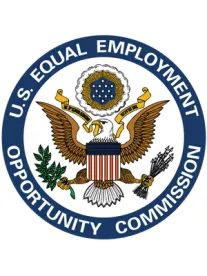On December 16, 2020, the United States Equal Employment Opportunity Commission (EEOC) issued guidance for employers regarding mandatory COVID-19 vaccinations and potential implications under the Americans with Disabilities Act (ADA), Title VII of the Civil Rights Act (Title VII) and the Genetic Information Nondiscrimination Act (GINA).
Requiring COVID-19 Vaccinations
Subject to certain restrictions and potential accommodation requests, the EEOC’s position is that employers may require employees to be vaccinated before returning to the workplace. The EEOC has clarified that the administration of a COVID-19 vaccine does not seek information about an individual’s impairments or current health status and thus does not constitute a “medical examination” under the ADA.
However, employers considering administering the vaccine, either directly or through a third party, should proceed with caution. Pre-vaccination screening questions may constitute a medical examination under the ADA or may elicit information about genetic information that implicates the GINA. Consequently, with certain potential exceptions, pre-screening questions from an employer would need to be “job-related and consistent with business necessity.” Simply requiring proof of receipt of a COVID-19 vaccination, though, is not considered a disability-related inquiry.
Accommodation Requests
If an employer requires vaccinations, it should be prepared to respond to potential accommodation requests based on disability or religious practices or beliefs.
Under the ADA, employers may implement qualification standards regarding safety in the workplace. However, if a mandatory vaccination requirement screens out or tends to screen out individuals with disabilities, the EEOC advises that employers must show that an unvaccinated employee would pose a direct threat due to “significant risk of substantial harm” to employee safety or health that cannot be resolved through a reasonable accommodation. Determining whether a reasonable accommodation is feasible would require individualized assessments before excluding an unvaccinated employee with a disability from the workplace. If the health or safety threat from an unvaccinated employee cannot be reduced to an acceptable level, the employer could consider other options for that employee, such as remote work or leave, such as under the Families First Coronavirus Response Act (FFCRA) or the Family and Medical Leave Act (FMLA).
Employees also may refuse to receive a COVID-19 vaccination because of a sincerely held religious practice or belief. In this situation, the EEOC describes how employers would need to provide an accommodation unless doing so would pose an “undue hardship” under Title VII, meaning more than a de minimis cost or burden. The EEOC also emphasizes that employers should generally assume that requests for religious accommodations are based on sincerely held beliefs, unless there is an objective basis for questioning this representation, in which case the employer could request additional supporting information. According to the EEOC, as in the situation with disability accommodations, if no reasonable accommodation is possible in this context, then the employer may exclude the employee from the workplace.
Next Steps
Employers intending to require COVID-19 vaccinations should clearly communicate expectations to employees. They also should keep any employee medical information obtained in the course of a vaccination program confidential.
Employers also should consider requiring proof of vaccination from a pharmacy or health care provider, rather than vaccinations being conducted by the employer or the employer’s contractor, and should clarify that no medical information should be disclosed to the employer in order to avoid implicating the ADA.
Additionally, managers and supervisors should be trained to respond to disability or religious-related accommodation requests, including engaging in an interactive process and individualized assessment before concluding an unvaccinated individual cannot return to the workplace. And, in that situation, the employer should explore potential leave and other options that may be available.





 />i
/>i

